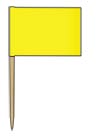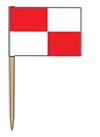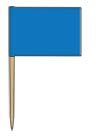-
Strategies and advice to help keep you safe when drinking during Schoolies.
-
Strategies and advice to help keep you safe if you choose to take drugs during Schoolies.
-
Tips and advice on how to stay safe when celebrating in the Schoolies beach hub.
-
Strategies on how to stay safe during sex at Schoolies .
-
Learn how to protect yourself and your friends on social media during Schoolies.
-
Tips and advice to help keep you safe in your Schoolies accommodation.
-
Practical tips to keep you safe when out and about during Schoolies.
Out and about
Worried about staying safe at Schoolies? We’ve come up with a list of easy and practical tips to help you stay safe so you can have an enjoyable Schoolies for all the right reasons.
Stick together
- always go out with at least one other friend
- pre-arrange a meeting place – in case you get separated from your friends
- If a friend wants to head back to your accommodation, don’t let them walk alone. Either accompany them back or ask a volunteer team to walk them home safely.
- If you decide to go back to someone else’s apartment, always make sure that you have one of your friends go with you.
Other simple safety tips
- Before you head to Schoolies, make sure your friends know how to contact your family or carers in the event of an emergency
- Keep credit on your phone and make sure it’s always fully charged before you head out
- $20 stashed away somewhere safe (e.g. in your shoe) in case you need to take a taxi or catch public transport.
- It goes without saying, but make sure you always carry photo ID.
- Save your hotel address in the notes section of your phone or save it as a destination in your maps app. It can be easy to lose your way in the dark if you know the address you can use your smartphone to help you navigate your way home.
- Make sure you download the Emergency+ App. It will help to help identify your location and seek assistance in case of an emergency.
- Don't forget to set up your Medical ID on your smartphone. Having your Medical ID available from the lock screen of your phone allows quick access to vital medical information as well as details of who to contact in case of an emergency
Help is always available on the Gold Coast
- Safer Schoolies Volunteers – whether you need a walk home, are feeling unwell, have a friend who has drunk too much or just need a friendly face to talk to, a team of volunteers (wearing the bright orange vests) will always be available to help. You can find them walking the streets of Surfers Paradise from 6pm nightly.
- Recharge Zones – head to a Recharge Zone for free water, a quiet place to regroup, or support of any kind including medical attention without judgement. Two Recharge Zone tents can be found within the Schoolies Hub (right near each stage) and one outside the Schoolies Hub entry on the Esplanade.
- Emergency Treatment Centre – head here for free treatment for medical emergencies or any mental health concerns. Located on the Esplanade and open from 7pm nightly.
- Chill Out Zone – providing a safe and supervised chill out space for those who are drug or alcohol affected, offering free water, first aid and general support. The Chill Out Zone van can be found in the nightclub precinct on Orchid Avenue, from 9pm nightly.
- Red Frogs – whether you need help mediating a problem with your roommates, a walk home back to your accommodation or would simply love an in-room pancake cook up for you and your mates, Red Frogs Australia are your people.
Call the Red Frogs hotline on 1300 557 123 (available 24 hours a day).
Please note: this is not an emergency hotline – Schoolies requiring emergency assistance should always call Triple Zero (000).
On the go
Whether you’re travelling by bike or vehicle, make sure you check out our tips below, especially the laws and responsibilities that come with hiring a scooter on the Gold Coast.
Hiring vehicles
When hiring a motorised scooter, moped or car, you will be entering in to a legal contract. It's important to know your rights to avoid any extra charges.
Before you hire, make sure your drivers licence is current. It also pays to find out where you are allowed to drive the vehicle.
Motorcycle, mopeds, motorised scooters and bicycles
- Be aware of pedestrians – often they may not hear or see you approach them.
- Take it easy if you're on two wheels - motorcycle/moped riders have a very high crash rate in their first years of riding, regardless of their age.
- Stay sober and stick to the speed limit.
- Respect the local community – keep horn blowing to a minimum.
- Only ride your vehicle in the designated areas, e.g. stay off the footpaths
- Bicycles must have and use pedals as the primary source of power, whether the bicycle is standard or power assisted. The rider must pedal to propel the bicycle forward and an electric motor must only assist the rider with pedalling.
- Bicycles with motors that operate at speeds above 25km/h are more like mopeds and motorcycles. They are only legal when they comply with Australian Design Rules and are registered for road use. Riders must wear a motorcycle helmet and must have relevant drivers licence. They also cannot be ridden on footpaths.
- Visit Motorcycle safety for tips on how to be aware, take care and survive on your motorcycle.
If you’re planning on hiring a moped and it’s fitted with pedals, it’s likely it will be an illegal motorised bike or and illegal moped and cannot be used on roads or paths.
Driving
- Don’t drink and drive or get in the car with a drunk driver – you could lose your licence or your life.
- Leave the car at home or at the party and catch a taxi, bus, tram or get a lift with a friend who has not been drinking alcohol.
- Driving when affected by drugs is illegal and extremely dangerous as they make you drowsy, reduce your alertness, concentration and coordination.
- If you’re on your learners or provisional licence, you must have a zero blood and breath-alcohol concentration when driving. You've only just got your licence – don’t lose it.
- After a big night (or week) of partying, don’t drive until you are well-rested and alert - particularly on long distances. Take a break at least every two hours and share the driving with your mates.
Public transport
Not only is it safe, but sometimes it’s easier to take public transport to get you from a to b. Grab yourself a go card and plan your journey ahead of time using the TransLink Journey Planner.
Around water
We don't want to bang on about it but a lot of things can go wrong when you're enjoying the sun and surf, especially if you've been drinking or using drugs.
- water and alcohol don’t mix – alcohol is a factor in 1 in 5 drownings. Had a few drinks or under the influence of drugs? Then stay out of the water (including the ocean, pools, baths and spas).
- swimming at night, whether it is at the beach or in a swimming pool, can be dangerous. If you get into trouble, lifeguards are not on duty and help may not arrive until it is too late.
Did you know? The effects of alcohol increase when you are in the sun for prolonged periods of time.
Sun safety
- Slip on clothes that will protect you from UV rays.
- Slop on sunscreen (SPF50+) 20 minutes before you go out into the sun. Reapply every two hours.
- Slap on a hat that protects your face, neck and ears from being burnt.
- Seek shade — trees, sails, beach umbrella etc.
For more information, visit the Queensland Government’s hot weather health and safety information.
Surf safety
If you’re keen to check out the surf, make sure you always swim between the red and yellow flags.
Red and yellow flags aren’t the only ones you may see at the beach.
 A yellow flag indicates potentially dangerous conditions so be cautious.
A yellow flag indicates potentially dangerous conditions so be cautious.
 A red and white chequered flag means a shark or crocodile has been sighted. Get out of the water fast!
A red and white chequered flag means a shark or crocodile has been sighted. Get out of the water fast!
 A red flag means the beach is closed for swimming.
A red flag means the beach is closed for swimming.
 A blue flag shows board-riding areas for surfers.
A blue flag shows board-riding areas for surfers.
Rips
When you’re heading back to shore, compare your distance from the beach with a landmark onshore. If you have been swimming for a while but not getting any closer to the landmark, chances are you are in a rip.
If you're caught in a rip, obey the ‘Three Rs’.
- Relax – stay calm and float, don’t swim against the current, swim across it.
- Raise – raise an arm to signal for help.
- Rescue – float and wait for assistance. Don’t panic – a lifeguard will be out as soon as possible.
For more information about beach safety visit Surf Life Saving Queensland.






